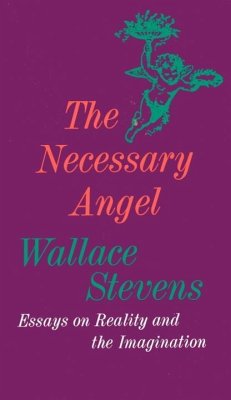In this collection of essays, consummate poet Wallace Stevens reflects upon his art. His aim is not to produce a work of criticism or philosophy, or a mere discussion of poetic technique. As he explains in his introduction, his ambition in these various pieces, published in different times and places, aimed higher than that, in the direction of disclosing "poetry itself, the naked poem, the imagination manifesting itself in its domination of words." Stevens proves himself as eloquent and scintillating in prose as in poetry, as he both analyzes and demonstrates the essential act of repossessing reality through the imagination.
Dieser Download kann aus rechtlichen Gründen nur mit Rechnungsadresse in A, B, BG, CZ, D, DK, EW, E, FIN, F, GR, HR, H, I, LT, L, LR, NL, PL, P, R, S, SLO, SK ausgeliefert werden.

